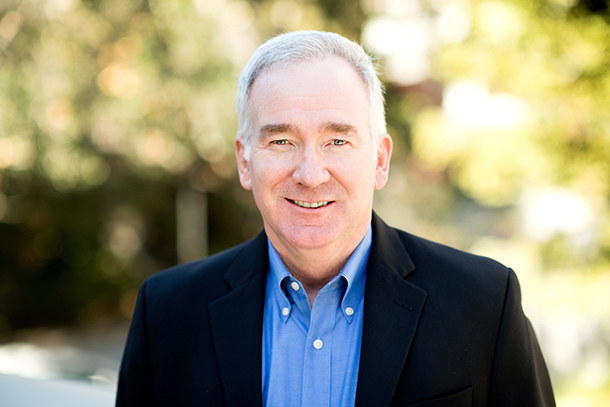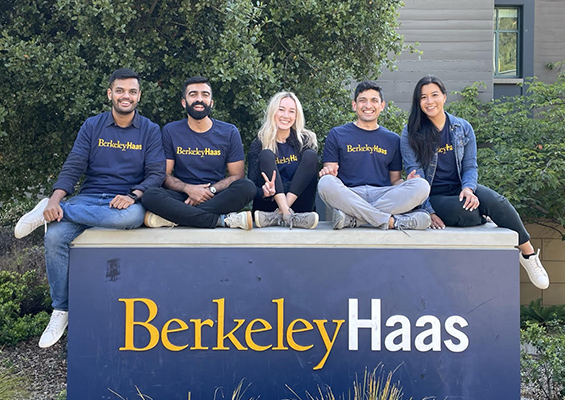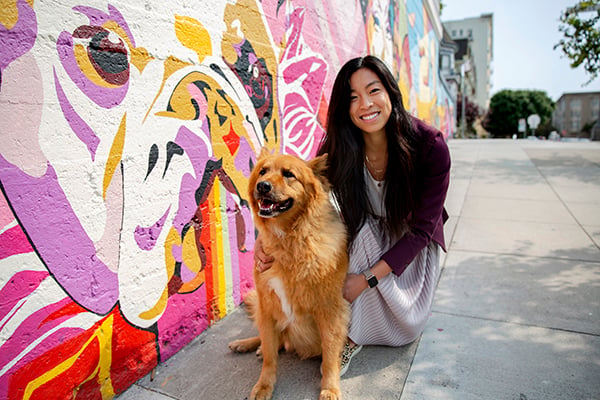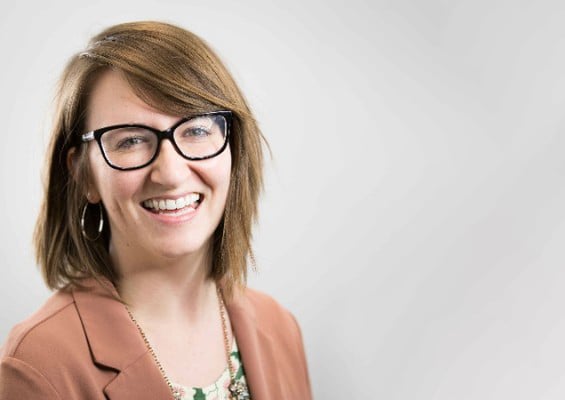Bill Pearce brings a career’s worth of insight and experiences to his work at Berkeley Haas, both inside the classroom and in his administrative roles. Known for his success in consumer goods companies, he is skilled in both marketing and sales. As chief marketing officer, he managed through a public health crisis at Taco Bell and led a turnaround of Del Monte’s portfolio of more than 30 brands. Bill also is the lead Board director at Ooma (NYSE) and chairman of VC-backed RichRelevance.
The ability to build strong teams and support cross-functional teamwork comes to the fore in Bill’s roles as assistant dean and chief marketing officer at Berkeley Haas, one of the nation’s top business schools.
You are the assistant dean and CMO at Haas, why is it important to you to teach as well?
Because I love being in the classroom. I love talking about marketing and innovation. And I love working with smart, young people. It’s a blast. Our students not only want to do well in their careers, they also want to do well by society. That’s a rare combination. When I was in B-school, I was worrying about getting a job. These folks are worrying about much bigger issues. It’s an awesome dynamic.
I treat students the way I’d treat new hires or young professionals at any of the companies where I worked. I set my expectations to be equivalent to what you’d do on the job. I give my feedback from the standpoint of how to develop the individual.
When I teach concepts, it’s about what you’re going to face on the job. Here’s how you break it down to get at the root cause. When I give feedback, I often use examples from history. This is how I had to convince the CEO or the board to do X instead of Y.
This semester, I’m teaching Corporate Innovation and Marketing Strategy. In both classes, I talk about the skills you need to succeed at work, the ability to persuade, to lead teams, to bring the reluctant along.
I’m acknowledging that this generation has a different learning style than previous generations."
What is your teaching style?
This is my eighth year teaching at Haas, and I’ve noticed a difference in students. They want to be hands-on, they want to practice, they want to talk with their classmates and debate and challenge each other. I give them that space. I’ll do that for three or four questions, all the while trying to move them toward the concept I’m trying to teach. I’m still using the case method objectives, and I’m still teaching Socratically, but I’m acknowledging that this generation has a different learning style than previous generations.
These are really smart people with interesting backgrounds. They should be sharing with each other. The other thing I do is make sure to mix them up, so groups can’t just cluster. I make them get up, move around the classroom, get to know people. Because part of B-school is building a network. I’ve seen friendships form between people who didn’t really know each other before they came to this class. So that’s kind of cool.
How would you describe Haas students?
Can I tell you a story? When I was the chief marketing officer at Del Monte, we were based in San Francisco. We recruited MBA grads from Haas, Stanford, Northwestern, and Cornell. When we would have a discussion with my team about where we’re going to put the new hires, I saw something really unusual. Everybody wanted Haas students. It wasn’t that the other students weren’t smart or good. My team said, "Oh, we love the Haas students. They come in with humility; they ask questions, they don’t try to tell you ‘This is all wrong.’" It was incredible. I had people fighting over the Haas students.
It’s interesting you mention humility. Is that quality something Haas looks for in the selection process? Or does the program itself cultivate and reward humility?
I think it’s a symbiotic relationship. The admissions team does a great job of selecting and admitting people who have a natural affinity for fundamental leadership principles. When they get to Haas, the culture here sharpens those behaviors and those expectations. We bring in people with that propensity, then we sharpen it and hone it through the learning process.
As a marketer, I think the number one trait that makes people good at their jobs is empathy. Without empathy, there’s no way you can identify insights that determine business-building ideas. And I don’t think you can be empathetic unless you have a healthy dose of humility in there. To me, that’s one of the things I look for when I recruit. You want to go where you find that trait in bountiful supply.
What do you hope your students will take away from your class?
I want them to come out of class with a sense of, 'I am prepared to begin my career. I’m fluent in the constructs and approaches that I’m likely to see at my employer. I’ve got the learning agility that if things are different, that’s okay. I’ve learned concepts and can apply them to real-world problems.'
I want them to come out with a sense of Confidence Without Attitude. To me, that’s success. The biggest kick I get out of teaching is not when I'm in the classroom but when I get a phone call or email from a former student who says, ‘Hey, can I pick your brain?’ Teaching is the start of a relationship I can invest in for years. A lot of people invested in me early in my career; this is my chance to pay it back.
The expertise and insight your professors bring helps deepen and enhance your MBA journey. By selecting a top school with top-notch professors, you maximize your experience.
Read more from the Take 5 with a professor series:
- Maura O'Neill says narrow-mindedness is the enemy of innovation
- Dave Rochlin talks flipping the classroom: MBAs learn by doing
- Clark Kellogg shares how he teaches design thinking, creativity, and innovation
- Jennifer Cohen talks equitable and inclusive leadership
- Jenny Chatman gives three benchmarks of an effective organizational culture
- Lucas Davis shares hardest economic concept for MBA students to grasp
- Kellie McElhaney talks equity fluency, courage, and vulnerability









